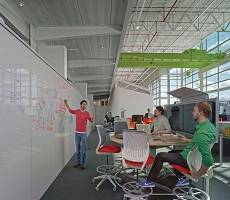July 16, 2014
Three ways in which politicians display their ignorance of the workplace
 The recent Cabinet reshuffle in the UK Government won’t alter one fact; politicians simply don’t get it when it comes to technology, the workplace, the way people work and the needs of small businesses. Once you dismiss the paranoid idea that they DO get it but don’t care because they’re too busy looking out for The Man, you have to conclude that one of the big problems they have (this won’t go where you think) is that they don’t understand anything about technology and work, especially when it comes to emerging technology, the working lives of individuals, the needs and functions of small businesses and the fact the self-employed exist at all. These things exist outside the bubble. This is obviously a problem because they are implementing policies and making big, uninformed and anachronistic decisions about the things that shape every aspect of our lives, help to define us as people and determine how companies and individuals function. Here are just three examples.
The recent Cabinet reshuffle in the UK Government won’t alter one fact; politicians simply don’t get it when it comes to technology, the workplace, the way people work and the needs of small businesses. Once you dismiss the paranoid idea that they DO get it but don’t care because they’re too busy looking out for The Man, you have to conclude that one of the big problems they have (this won’t go where you think) is that they don’t understand anything about technology and work, especially when it comes to emerging technology, the working lives of individuals, the needs and functions of small businesses and the fact the self-employed exist at all. These things exist outside the bubble. This is obviously a problem because they are implementing policies and making big, uninformed and anachronistic decisions about the things that shape every aspect of our lives, help to define us as people and determine how companies and individuals function. Here are just three examples.







 Arthur C Clarke was one of those scientists and science fiction writers who made a pretty decent fist of getting his technological predictions right. Not only did he foretell general trends such as
Arthur C Clarke was one of those scientists and science fiction writers who made a pretty decent fist of getting his technological predictions right. Not only did he foretell general trends such as 
















July 16, 2014
Keeping remote employees motivated is key to successful flexible working culture
by Gemma Falconer • Comment, Flexible working, Workplace
Flexible working has barely been out of the news since the latest government changes. But while allowing employees to work remotely can do wonders for staff retention, motivating them and keeping them in the loop presents a new problem. Although self-starting employees feel that they have more control over their work and fewer distractions, it can also lead to a sense of isolation. It is important for retention that you not just offer a flexible working option to employees, but that all the staff make an effort to continue allowing them to feel like a part of the team. The four best practices that will help you motivate employees that telecommute are: ensuring you build trust between those who telecommute and their colleagues from the start; establish regular communication between remote and in-office staff; manage goals, expectations and outcomes and take steps to establish that remote working is made part of the company culture. (more…)